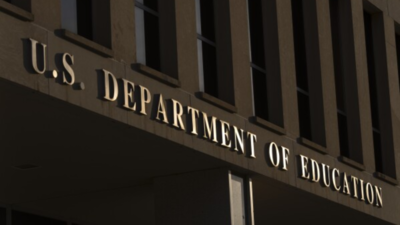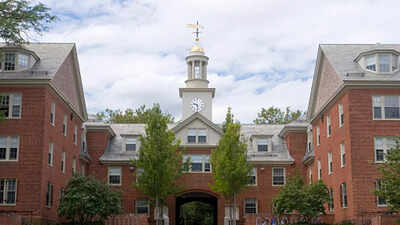Inside the H-1B visa collapse: Why 2025 is reshaping the future of skilled immigration in the US

What began as a slow administrative tightening has rapidly turned into a storm. The H-1B visa system, long considered the backbone of America’s high-skilled workforce, is now buckling under political pressure, procedural overhauls, and growing distrust. In 2025, what was once a predictable immigration pathway is becoming a cautionary tale, especially for thousands of international graduates who thought the U.S. would reward talent with opportunity.Instead, they’re facing silence, scrutiny, and shutdowns.
Delays turning into breakdowns
The U.S. State Department’s announcement of mandatory in-person interviews for H-1B applicants starting September 2025 has sent shockwaves through the immigration community. The waiver, introduced during the pandemic to streamline processing, had become a quiet but crucial support for a fragile system.Its revocation means that already overloaded U.S. consulates, especially in India, will now have to accommodate thousands more face-to-face appointments. Wait times, which already stretch into months, are expected to balloon further. Employers are left stranded, hires are postponed or canceled, and skilled professionals are watching their windows of legal stay close rapidly.
A broken promise to graduates
For international students graduating from U.S. universities, the cracks are devastating. Most rely on the H-1B system to legally remain in the country after Optional Practical Training (OPT). But with increasing denials, delays, and employer reluctance to sponsor, 2025 is turning into a graveyard of aspirations.A system that once advertised “study here, work here” is now delivering a different message: “You’re on your own.”
Political targeting and scapegoating
Amid these structural failures, the political temperature has spiked. Prominent figures like Steve Bannon have called the H-1B program a “scam,” stoking fears that American jobs are being “stolen” by foreign talent. More recently, a conservative Congresswoman’s anti-H-1B posts specifically targeting Indian visa holders sparked outrage across party lines. But the damage was done.The shift is clear. H-1B is no longer just a bureaucratic issue. It is a political wedge. And foreign professionals, particularly Indians, are being painted as convenient scapegoats in a broader ideological war over immigration, trade, and national identity.
A silent exodus begins
With no guarantees of security or transparency, skilled workers are quietly leaving. Many are opting to return to India, Canada, or the UK, which are seen as more stable and respectful of talent. Others are being forced out after years of study and work due to visa rejections or administrative backlogs.Worse still, some are being flagged for social media posts, peaceful protests, or minor legal technicalities. This is part of a growing wave of “soft rejections” that require no public explanation but achieve the same effect: keeping them out.
Alternatives? Few and fragile
While cap-exempt options like university jobs or O-1 visas exist, they are neither scalable nor accessible to most applicants. The path for high-skilled, employment-based immigration is narrowing at every turn.There is no new system to replace H-1B. Just silence, gridlock, and growing fear.
India’s muted response
Despite the disproportionate impact on Indian nationals, who typically account for over 70% of H-1B recipients, the Indian government has remained publicly silent. While private diplomatic channels are reportedly active, no strong statement or formal protest has been issued against what many see as a clear targeting of Indian talent.
A turning point with long-term costs
What’s happening in 2025 is not a blip. It is a structural shift. And if left unaddressed, the U.S. risks permanently damaging its reputation as the destination for global talent. Universities will struggle to attract students. Companies will find it harder to hire. Innovation will suffer.The U.S. education-to-employment pipeline, the very engine that powered Silicon Valley, biotech breakthroughs, and global research leadership, is being quietly dismantled.And by the time the alarms are loud enough to hear, it may already be too late.TOI Education is on WhatsApp now. Follow us here.





